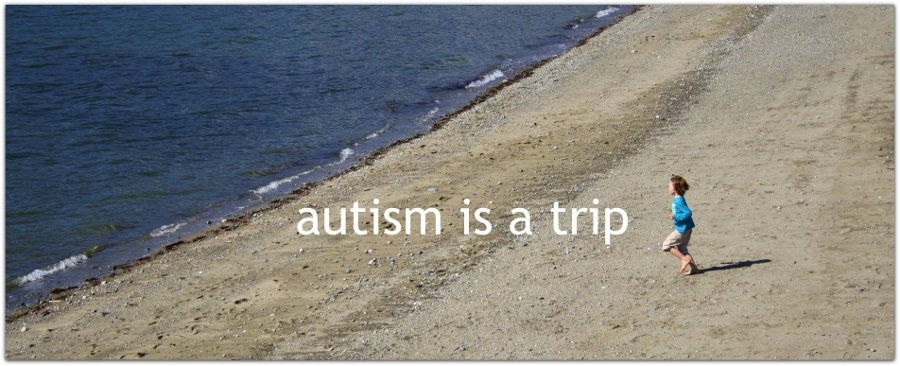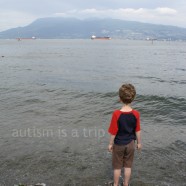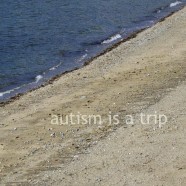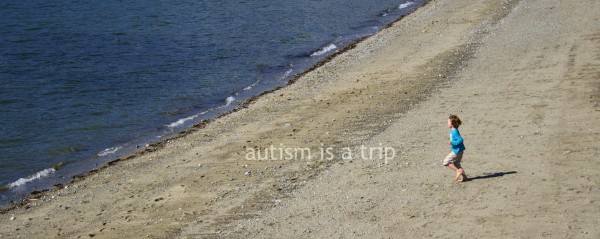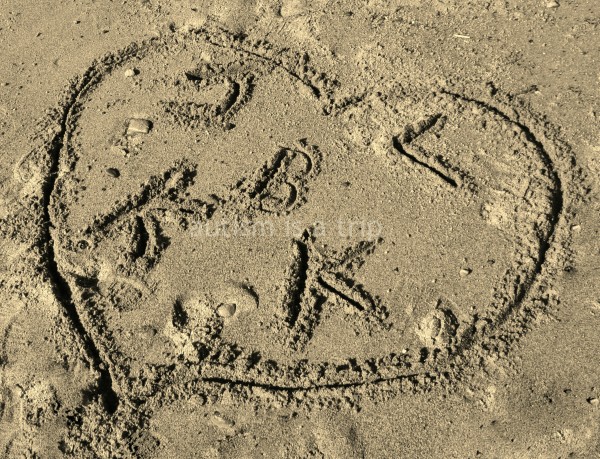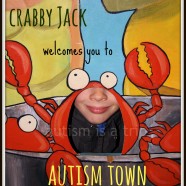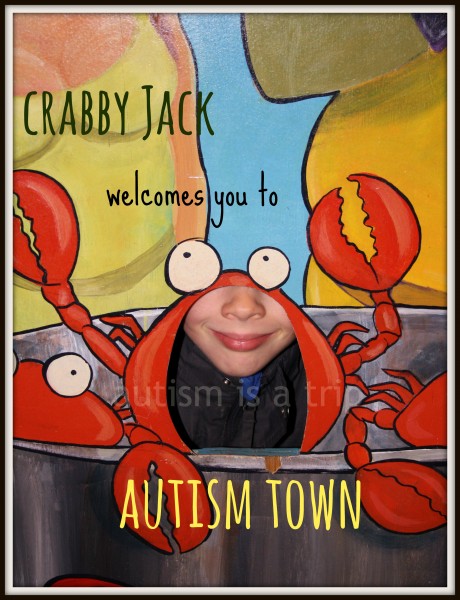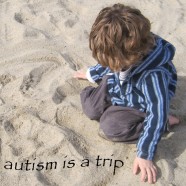Why Didn’t Mikaela Lynch Get an Amber Alert?
I also blog over at redOrbit.com, and this was my other post as part of “An Outpouring of Love for The Mikaela Lynch Family.” To read more entries from other writers, please visit this site. You can see the original post here. Sadly, several more autistic children have drowned since I wrote this article not two weeks ago.
******************************************************************************************
There is a question many are asking in the wake of Mikaela Lynch‘s disappearance in Clearwater, CA last week. Actually, there are a lot of questions being asked by a lot of people, but there is one that I, and many in the autism community, would really like an answer to.
Why was there no Amber Alert for this missing nine-year-old girl?
It’s important to understand that not all missing children get an Amber Alert issued for them. In order to “qualify,” missing children must fit certain criteria. Primarily, the family must be able to prove the child was abducted, and preferably give a description of the abductor and/or their vehicle.
A missing autistic child does not fit the criteria for an Amber Alert, yet the dangers are just as real and just as imminent as for one who has been abducted.
Over half of all autistic children are “runners”: children who, given the chance or the right circumstances, will simply go. Take off. Run. Sometimes there is a destination, oftentimes there is not. My child runs when he doesn’t want to leave somewhere or when he’s off in “his world,” as we call it. He gives us very few clues as to where and when it might happen, so we are always wary. It doesn’t happen very often with him, but many autistic children are continuous flight risks, meaning their families are on high alert at all times, day and night. Their houses are fortresses of locks and gates and barriers and alarms.
Another curious thing about autistic children? They’re fast. Faster than you’d ever think, and highly trained in the arts of evasion. If an autistic child wants to run and you’re not ready for it, there’s not a whole lot you can do other than hope you can run faster. Or hope there’s someone on the other end who can run interference. A lot depends on hope.
Mikaela was nonverbal. She could not speak, nor really understand the world around her past the cognizance level of a very young toddler. Mikaela was also not toilet trained. That’s not unusual for children on certain parts of the autism spectrum, nor is it a surprise to anyone who has an autistic family member or knowledge of autism. Autism parents talk about speech competence and toilet habits in the same breath. It’s just another part of life. And no, it doesn’t matter if she was or was not able to use the toilet herself, but it speaks to her vulnerability. It’s not newsworthy in any kind of sensational way.
Autistic children are barraged with sensory input, and are equally drawn to things that stand out to them. Mikaela, like many children, loved water. Given the chance, she went to the water. Mikaela had sensory issues with her clothing – typical among individuals on the spectrum – and liked to shed it when she was hot. Within minutes of leaving her home, she was naked. A naked nine-year-old girl, running down the street, headed for water.
I cannot imagine putting a child in a more vulnerable situation.
Knowing these things about Mikaela, it becomes a little easier to see why she may have taken off in such a hurried manner. How often do parents find themselves chasing toddlers who have run off after a butterfly or a car or a cloud? Who strip naked at the drop of a hat? Small children are amazed with the world, and they want to embrace it. Individuals with autism experience the world much in the same way. To them, everything is bigger and louder and brighter and more extreme (this is an excellent video that attempts to replicate how an autistic person experiences their environment).
Autistic children with a high-risk of eloping (running) can be fitted with a tracking anklet or GPS tracking device in their school bag (there are bracelets and watches, too, but those can be torn off by an extremely sensitive individual). There is an endless array of identification items for autistic children, everything from temporary tattoos to shoe ID tags. We’ve even resorted to writing our phone number on Jack’s upper arm where he can’t rub it off.
The majority of us in the autism community don’t need to ask what security measures Mikaela’s parents had in place to keep her contained and out of harm’s way. We can safely assume, knowing her abilities and cognizance level, that they had multiple precautions in place: locks, gates, constant supervision, etc. As will happen in the best of circumstances, life intervened. An unexpected chain of events led to Makaela being unsupervised for a moment. A moment she seized. A moment her family will never forget.
There is no one to blame for Mikaela taking her chance to run, nobody to fault. There is simply no way to keep a nine-year-old child under total surveillance without locking them away in a room. Things happen, life happens, tragedy happens.
It’s what happens next that’s important. Mikaela’s family was just minutes behind her, and called the police quickly. Hundreds of law enforcement and concerned citizens joined in the search. But because Mikaela was not abducted, there was no Amber Alert.
Perhaps they make a good point in narrowing the field of children to abductees, so that people don’t get desensitized to the alerts. The good they do, though, cann0t be denied. Amber Alerts go out over the radio, the television, Twitter feeds, text messages, email, up on SigAlert signs on highways, and more. Information about the missing child is spread far and wide within a very short span of time, and it has been proven to work, time and again.
Autistic children deserve that same attention. Mikaela was, sadly, not the first autistic child lost to drowning this year. Or even this month. She is, in fact, one of three children who have drowned in the last week alone.
Drowning is the leading cause of death for autistic children under the age of 14, and not by a small margin, either. 91%.
I can’t help but think that if an Amber Alert had been issued for Mikaela, perhaps someone may have taken a closer look at the child in the street. Or joined in the search. Or come forward with information they didn’t realize was relevant.
We can’t beat ourselves up for what might have been, but we can change the future for autistic children. If we can’t give them an Amber Alert, perhaps we need a new alert. One specifically for vulnerable autistic individuals. The family of Amber Hagerman, another nine-year-old who went missing, paved the way for the Amber Alert. As a result, countless children are alive today. Our children deserve the same attention, the same urgency, the same rapid dissemination of information.
We need an Autism Alert, and we need it now. We can’t spare any more of our very special babies.
To learn more about what you can do to help prevent wandering incidents and deaths within the autism community, please visit The AWAARE Collaboration.
This post is part of “An Outpouring of Love for The Mikaela Lynch Family.” To read other entries, please visit this site.
Share this: Twitter | StumbleUpon | Facebook | digg | reddit | eMail Read MoreThe Missing Pieces
There are missing pieces in the autism community today. Beautiful, tragic pieces named Mikaela, Owen and Drew.
So much has been said and written about Mikaela, yet there is so much more that needs to be said. To be screamed. To be cried out into the night.
Our babies are not safe.
We do what we can. We install extra locks, we put up barricades, we install alarms. We put up signs and rub temporary tattoos on little arms and put ID tags on shoes. We tell everyone entrusted with their care to be aware, be cautious, be vigilant.
But we know, at the end of the day, that our children cannot be locked away in a safe room forever. They cannot be grasped by the wrist or strapped into their seats at all times.
Our children, like all children, need to experience the world first-hand. They can’t do that from behind bars.
To do this, we have to trust in so many things. We have to trust that the people watching them will not look away. We have to trust that the child remembers – even a tiny bit – about safety. We have to trust in the unknown.
We also have to give ourselves a break. Parenting and giving care to an autistic individual can be exhausting and exhilarating. It can eat away at you in the same moment it’s filling you with the most joy. It can raise you up, and beat you down.
And sometimes things happen.
Mikaela Lynch’s family will never forget the moment she disappeared. Nobody made a mistake, nobody dropped the ball. Mikaela simply found a weak spot in her web of safety and took her chance to run free.
Like children will, she headed for water. Like many autistic children, she simply didn’t understand the dangers. The danger of a nine-year-old girl out in the world, unclothed, on her own. The danger of water when you cannot swim.
Children will always find a way around the borders and fences we construct for them. It’s our job to provide guidance and limits, it’s theirs to bust through them. It’s a part of learning and growing. So what happens when that curious child never grows out of the desire to run? What do we do when the guidance and limits fail? Because sometimes, they will fail. We are only human.
Abducted children get an Amber Alert, a barrage of information that disseminates quickly via television, radio, emails, texts, lottery tickets, Twitter, Facebook, SigAlert signs over highways, and more. There is no time to lose when a child is abducted, so the system acts as quickly as possible.
While I understand that sending out too many Amber Alerts has the potential to desensitize the public, there needs to be an equivalent alert for autistic children. Wandering, running, bolting autistic children are at risk every bit as much as if they were abducted. There are just too many variables when it comes to a child who may not even understand the concept of danger and safety.
I can’t say that the sad stories would have ended differently if there had been an alert. But the success of the Amber Alert speaks for itself. Anything is worth doing if it saves just one life.
We talk a lot about autism awareness, and this is what it comes down to. Let the public be aware. Aware of what a child with autism will do. Aware of the inherent dangers. Aware enough to step in and help.
They can’t, unless we tell them. Alert them.
We simply can’t keep losing our children like this. Not when something so simple may have saved them.
I want to change the system. For my child, for your child, for Mikaela. And Owen. And Drew.
To learn more about what you can do to help prevent wandering incidents and deaths within the autism community, please visit The AWAARE Collaboration.
This post is a part of “An Outpouring of Love for The Mikaela Lynch Family.” To read other entries, please visit this site.
Share this: Twitter | StumbleUpon | Facebook | digg | reddit | eMail Read MoreAt The Heart of Darkness
I am a generally happy person. I try to find the humour and joy in everything, even when it would appear that there is none to be had.
It’s been difficult to find my smile lately.
I should elaborate. I have many reasons to smile daily, all day long. I have four amazing children, my beautiful, beautiful boys, whose every breath is reason to be joyous. I smile, but there is something lurking behind it. Something dark and sad, something I’m trying my best to understand.
I am anxious. I am depressed.
I have suffered from Post-Partum Depression (PPD) after each of my children’s births, in increasing severity. My youngest son was born in October and this time it came over me like a tidal wave, the worst yet. Many people and medications support me, but the dark cloud persists. I feel like I’m going through the motions, watching my happy life from the outside.
I’m trying to put my finger on it. Baby blues? Could still be, my child is only six months old. Four children seven years and younger? Of course. There is stress in wrangling them here and there, getting them into bed, entertaining them, feeding them. They eat a lot. Seriously, a lot. But all of those things are part and parcel with motherhood. All of those things are expected. If I didn’t think I could handle this job, I wouldn’t have applied, and kept applying. My entire life brought me to this point, and I wouldn’t change a thing.
(Ok, in a perfect world there are things in my past I would have done a whole lot different, but we don’t get do-overs. It’s easier to accept that the decisions I’ve made in life, for good or bad, have created my life today. And I kind of love my life today.)
Autism? Autism is a huge part of our lives. It’s pervasive, and up to now, we’ve made it work. I realize, however, that things are changing. It’s getting more difficult. Jack is getting older. He’s getting stronger and smarter. A lot smarter. And he’s busting through all of the tools I’ve used to help him – and myself – cope. So we’re at a plateau of sorts. Or maybe diverging paths. Jack is heading into his future, and I am scrambling, trying to keep up with him. Trying to get us back in sync.
I’m flailing.
Another entity has also invited itself into our family, or is trying to. ADHD*. We are having one of our sons assessed, and I’ll be surprised if that’s not the outcome. It’ll be a few more months and a few more doctor’s appointments and a few more assessments until we know for certain, but I want to know for certain. I don’t like ambiguity, especially in my home, with my children. I am staring down the barrel of this the same way I did with autism. If my child has a challenge, I want to know what it is so we can get going. Get a handle on it. Get ahead of it. Early intervention is the best solution in any situation involving a child. Involving anyone, honestly.
If that were the only issue, I would be fine. But no, ADHD didn’t want to stop there. In the process of understanding what’s happening with my son, I started realizing something about myself. The doctor we saw last week asked me something that threw me for a loop. After going over our family’s medical history, she asked a simple question. One I hadn’t ever heard put in quite this manner.
“Does his behaviour resemble anyone in your family?”
I looked at her, stunned. The sky opened up, the clouds parted, a window of clarity descended upon me.
Or maybe I blinked.
Yes, in fact, it did resemble someone in my family.
Me.
Insert montage of snapshots of my life: my elementary school report cards describing in detail how I couldn’t sit still, talked too much, couldn’t focus; a trip to the doctor as a small child, with the word “hyperkinesis” ringing in my mind; family members telling me I talked too much, sit still, calm down. I was obsessed with candy (the bad kind, not the kind I give my kids now). I stole money from my mother’s wallet and my father’s bureau. I couldn’t handle not getting what I wanted, and screamed and banged my head when I couldn’t deal. Punishments didn’t mean a lot to me, as I was somehow always able to adapt. I lived in constant anxiety about one thing or another. My main recollection of myself as a child? Obnoxious.
That is how I always thought of myself, until one day in high school I looked in the mirror and decided I wasn’t going to be that person anymore. I embarked on a long journey of figuring it all out. Teaching myself how to take turns in conversations and not only talk about me and mine. Working to tune out the sensory overloads that hurt my head. Putting myself into social situations and act accordingly, even though I was deathly afraid. Trying, desperately, to become a “me” I could look in the mirror and love.
That’s a lot to carry around.
I pulled out those report cards not too long ago, and read them all in detail. And I cried. I cried for the little girl who never really understood why she was in trouble. Who didn’t know why she did the things she did, but couldn’t stop herself from doing them again. Who desperately wanted to fit in somewhere, anywhere, but just… couldn’t.
And I cried for my children. Because I don’t want them to ever feel what I felt. I want to shelter them from the awkwardness, the self-consciousness, the underlying feeling that they don’t belong.
I want my sons to know what is within them that makes them do things differently sometimes, and to understand not only how to manage and cope, but to know and believe that they are perfect exactly the way they were born.**
I’m not under the illusion that I can save my children every heartbreak, every hurt. Part of growing up is experiencing the things that will make them into strong men, whole men. Heartbreak and hurt are a part of the deal as much as love and fulfillment. Yin and yang.
If I can do anything to keep my children from feeling the confusion I had, I will. If I can tell them every single day that they are beautiful and confident and awesome just the way they are, they might believe it. I can try. I have to try.
In the moment when the doctor asked that simple question, I realized that my child is very much like me. He’s the only one of our four boys who really looks like me (the other three are clones of my husband), and now I know he shares more than my features.
The most important thing I took out of that meeting was the very real possibility that if my son has ADHD, I most likely have it, too. It’s genetic, so it’s entirely possible. The most damning evidence, though, is that word I remember so vividly from long ago. Hyperkinesis. I’ve known it all of my life, but never really understood what it meant for me. I know now that hyperkinesis is what they called ADHD before it was ADHD.
I know that after my mother took me to the doctor and we learned that word, she put me on the Feingold Diet and cut out all artificial colours and flavours. I don’t remember anything else, though. No medications, no more doctor’s visits. No more addressing the elephant in the room.
Me.
Sadly, my mother has passed away, so I can’t ask her all the questions that are running around in my brain. My father has told me as much as he recalls, but there’s more. I’ve been questioning myself since Jack was diagnosed almost five years ago, and now it all seems to be making sense.
I want to know more. What can I do to get more focus? Would medication help? Is the medication I’m on making it worse? I want to banish the ambiguity.
So, I think I’ve discovered the source of the darkness: I am overwhelmed. I have several very large balls in the air, and I’m afraid if I drop them, I’ll fail my family. Autism. ADHD in my child. ADHD in myself. The anxiety. The unknown.
I am strong, I have been through worse. I just want answers, and I want clarity.
I want to help my son navigate his life with autism.
I want to help my other son cope with whatever is challenging him.
I want to get ahold of myself so I can live my life free of this weight that’s pressing me down.
I want to smile.
*****************************************************************
*There are some who may hear ADHD and think, “Oh, that’s not so bad, it’s not as bad as autism.” No, it isn’t, it’s different. It’s still a challenge, both to the individual who has it and the family that supports them. It’s work, on top of lots of other work. Not impossible, but difficult nontheless.
**I feel it’s important to note that I do not blame my parents in any way for the way I felt, or the way they handled me. This was forty years ago, and an entirely different world. If anything, my experiences have informed me well to guide my own children.
Share this: Twitter | StumbleUpon | Facebook | digg | reddit | eMail Read MoreHappy Birthday to Us!
Another year has come and gone and here we are. Three years ago, I sat down to share some of our stories. Our child, our beautiful boy who happened to have autism, was too hilarious to keep to ourselves.
I had no idea where that day would lead.
Three years later, I’ve written over a hundred posts (yeah, I know, I need to step it up), gathered almost two thousand friends in the Facebook community, countless more on Twitter, and made too many new friends both on-line and in real life to count. We have helped raise money locally for our autism societies here in British Columbia, given guidance to some folks new on the path, and gained more knowledge and wisdom and love than I could ever begin to give back.
But I will try. I will be here more often, that is my pledge to you, to myself, and to Jack. There are so many stories to tell, so many lessons to learn, so very many new friends to meet. We are together, even if we never meet face to face. Our autism life is a big buffet, and we’re bringing laughter with a side of activism. I look forward to seeing what you’re bringing, too.
Cheers, to you, to us, to this crazy thing we call autism.
Namaste, friends. I’m so very happy you’re here.
Share this: Twitter | StumbleUpon | Facebook | digg | reddit | eMail Read MoreOn the Defense
I’ve been on a kind of hiatus for a while now, while I was pregnant and had my fourth child. A fourth boy. I’ve been ready to come back for a few weeks, but got caught up in the holidays and boy #3’s birthday and more holidays and life. I have stories for you, tales of Jack and his new brother, Jack and his fascination with horrible weather events and historical vehicular disasters (both air- and sea-borne), Jack and his new love of making gifts for everyone. Stories about how we need to find an ABA or someone who can help me now that Jack’s older, anecdotes about how Jack is doing in school.
Life has, as is its wont, interceded in my plans.
On Friday, twenty children died. Twenty mamas lost their babies. Twenty families were wrenched apart at the very time of year we, regardless of religion, tend to gather our loved ones closest. Those charged with keeping them safe died as well, in the course of doing that very job. There are older mamas missing babies tonight, too.
Why should this affect me, other than the fact that two of my children are the same age as those who were lost? Other than the obvious devastation one feels when something horrifying transpires? Other than the unbearable sadness at the loss of innocents? One word.
Autism.
There have been rumours and speculation that the individual who destroyed twenty-seven lives is on the spectrum. Nothing concrete, but enough for the mainstream and social media to grasp in their hot little feeds and run with. I have seen comments on my friends’ posts about how “the shooter has autism and that’s why”. I watched Piers Morgan, on CNN, say that people with Asperger’s are “missing a piece of their brain” and can’t feel sympathy. I have felt the bile rising in my throat for three days.
Everything I’ve worked for with my son is teetering on a fence now. This situation could go either way. People will come to their senses and understand that ASD is not the cause of a massacre, or they won’t, and I fear for what happens then. I’m girding myself, because people have notoriously and stubbornly, as evidenced by our last election, refused to be sensible.
Why should this bother me? My child doesn’t have rage issues. My child would never do this. My child isn’t in danger.
I’m sure there are many parents out there tonight who thought the same things and were wrong.
I don’t know what the future holds for my child, or how his ASD is going to affect him in five or ten or twenty years. I can only hope that with early intervention and constant, loving support, he’ll be a contributing member of society. A happy person with nothing more on his plate than he can handle, and the sense to reach out for help when he can’t.
What I do know is that all of a sudden, instead of telling people that my son has autism with a sense of pride (because I am damned proud of my son), I am defensive. I feel the need to explain. He’s high functioning. He’s really empathetic and loving. He’s not that person.
I don’t want to be defensive about my son, and I don’t want him to ever feel defensive about himself. Especially not because some other person who may or may not be on the spectrum had more than he could handle and made some seriously bad decisions. I want him to be as proud of himself as I am, always.
Someday I will tell him about the babies who were lost, and why. And we will talk about it, and we will probably not be able to understand, ever. And I will continue to tell him that he is loved and supported, even if he’s angry. Even if he’s angry with me.
Mental health support is vital. The village cannot survive without it. I’m doing my part.
Namaste.
Share this: Twitter | StumbleUpon | Facebook | digg | reddit | eMail Read More